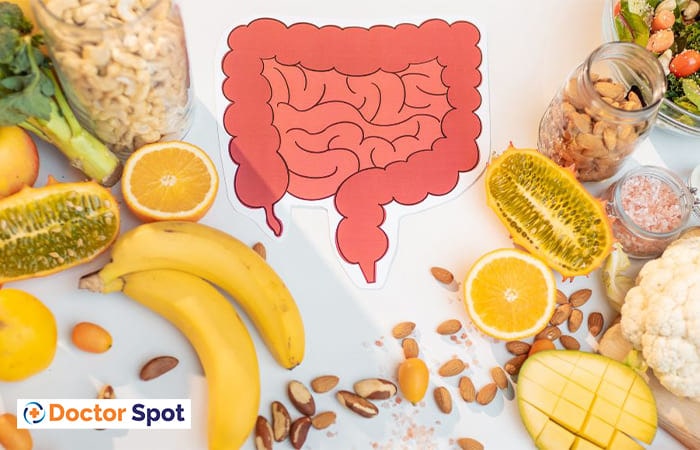What Exactly is Diverticulitis? A Guide to Dietary Management

Experiencing constant abdominal pain bloating, and irregular bowel movements. These symptoms can be signs of diverticulitis, common digestive condition caused by small pouches in the colon becoming inflamed or infected. In this article, we will delve into the intricate relationship between diverticulitis disease and diet, exploring how dietary choices can impact the management and prevention of this condition.
Understanding Diverticulitis
Diverticulitis occurs when small, bulging pouches called diverticula, formed in the walls of the colon, become inflamed or infected. This inflammation can lead to a range of uncomfortable symptoms, including:
Symptoms of Diverticulitis
- Abdominal pain, usually on the left side
- Bloating and gas
- Changes in bowel habits, such as constipation or diarrhea
- Fever and chills
Causes of Diverticulitis
While the exact cause of diverticulitis is not fully understood, factors such as a low-fiber diet, aging, obesity, and lack of physical activity are believed to increase the risk of developing this condition.
The Role of Diet in Managing Diverticulitis
Diet plays a crucial role in the management of diverticulitis. Making the right dietary choices can help alleviate symptoms, prevent flare-ups, and promote overall digestive health.
Recommended Diet for Diverticulitis
- High-Fiber Foods: Consuming a diet rich in fiber can help prevent constipation and promote regular bowel movements. Foods such as fruits, vegetables, whole grains, and legumes are excellent sources of fiber.
- Probiotic-Rich Foods: Including probiotic foods like yogurt, kefir, and sauerkraut in your diet can help maintain a healthy balance of gut bacteria and support digestive health.
- Hydration: Staying hydrated is essential for softening stool and promoting regular bowel movements. Aim to drink plenty of water throughout the day.
Foods to Avoid
- Low-Fiber Foods: Processed foods, red meat, and dairy products low in fiber can exacerbate symptoms of diverticulitis.
- Nuts and Seeds: While once thought to be problematic, recent research suggests that nuts and seeds may not necessarily need to be avoided, but moderation is key.
- Spicy Foods: Some individuals may find that spicy foods can trigger symptoms of diverticulitis and should be consumed in moderation.
Callout: A balanced diet rich in fiber and hydration is key to managing diverticulitis and promoting digestive health.
Lifestyle Modifications for Diverticulitis Management
In addition to dietary changes, certain lifestyle modifications can help improve symptoms and reduce the risk of diverticulitis flare-ups.
Regular Exercise
Engaging in regular physical activity can help maintain a healthy weight, promote bowel regularity, and reduce inflammation in the colon.
Stress Management
Stress has been linked to digestive issues, including diverticulitis. Practicing relaxation techniques such as deep breathing, meditation, or yoga can help manage stress levels and improve overall well-being.
Why Does it Happen?
While the exact cause isn’t crystal clear, several factors might increase the risk, including aging, a low-fiber diet, and certain lifestyle choices. Imagine filling a balloon with water; if you keep adding pressure, there’s a chance it might find weak spots to bulge out. Similarly, increased pressure within the large intestine can cause these pockets to form.
The Road to Diagnosis
Suspect that you or a loved one might be dealing with diverticulitis? The next critical step is diagnosis. This usually involves visiting a healthcare professional who might:
- Perform a physical examination.
- Recommend blood tests to check for signs of infection.
- Potentially advise imaging tests like a CT scan, which helps give a clear view of what’s going on inside.
Managing Diverticulitis: A Balancing Act
1. Immediate Care
If you’re diagnosed with diverticulitis, initial management might include:
- Antibiotics: To fight off any infections.
- A liquid diet for a few days: Think of it as giving your digestive system a little vacation.
- Pain relievers: Because no one wants to be in pain if it can be helped.
2. Long-term Management
To prevent future episodes, consider:
- A high-fiber diet: Fruits, vegetables, and whole grains can become your best friends.
- Staying hydrated: Water is your ally in keeping things moving smoothly.
- Regular exercise: Keeping active helps maintain a healthy weight and reduces pressure on your colon.
Can You Prevent Diverticulitis?
While there’s no guaranteed way to prevent diverticulitis, adopting a healthier lifestyle could lower your risk. This includes eating a fiber-rich diet, drinking plenty of fluids, exercising regularly, and avoiding smoking. It’s about taking care of your body to potentially avoid those bumps on the path.
Myth vs. Reality
Myth: Only older adults get diverticulitis.
Reality: While it’s more common as you age, younger adults aren’t immune. Lifestyle plays a big role.
Myth: Nuts and seeds cause diverticulitis.
Reality: There’s no strong evidence supporting this. In fact, they can be part of a healthy diet.
When to Seek Medical Help
It’s critical to consult a healthcare professional if you experience severe abdominal pain, fever, or other symptoms of diverticulitis. Better to be safe and get an accurate diagnosis rather than waiting for the situation to potentially worsen.
Life with Diverticulitis: You’re Not Alone
Remember, having diverticulitis doesn’t mean you can’t lead a fulfilling life. Many people manage their condition through diet, lifestyle changes, and, when needed, medication. Keeping an open line of communication with your healthcare provider and being proactive in managing your health can make a significant difference.
In Conclusion: Paving a Smoother Path
In conclusion, understanding the relationship between diverticulitis disease and diet is essential for managing this common digestive condition. By incorporating a high-fiber diet, probiotic-rich foods, and making lifestyle modifications such as regular exercise and stress management, individuals with diverticulitis can alleviate symptoms, prevent flare-ups, and support overall digestive health. Remember, always consult with a healthcare professional or registered dietitian before making significant changes to your diet or lifestyle when managing diverticulitis.
Also read: What Exactly is Diverticulitis? Causes, Symptoms, and Treatment